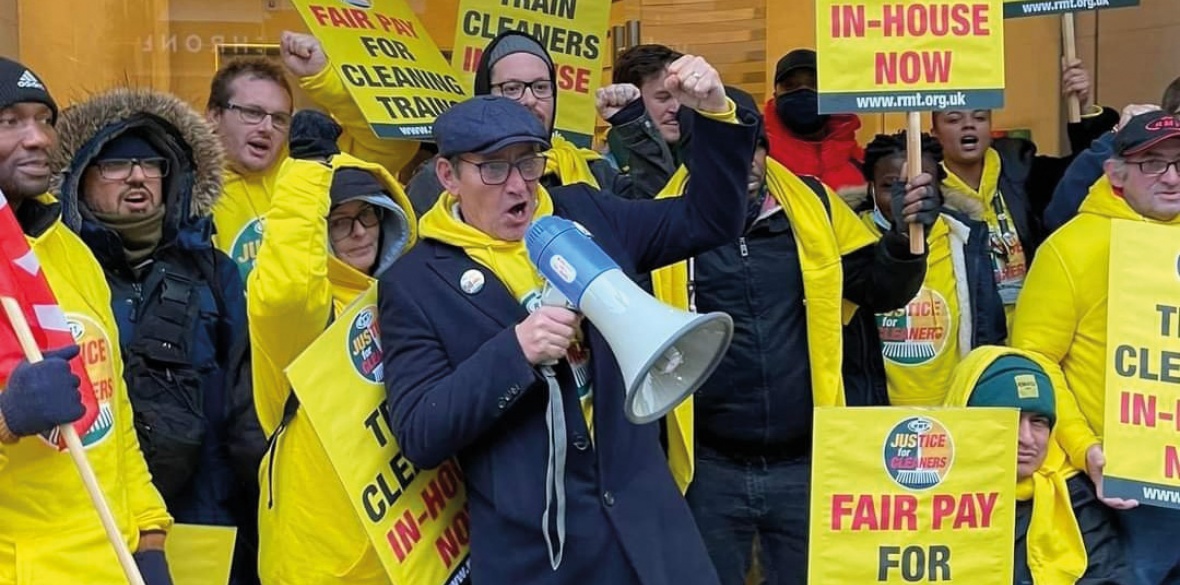This is the last article you can read this month
You can read more article this month
You can read more articles this month
Sorry your limit is up for this month
Reset on:
Please help support the Morning Star by subscribing here
“TO BE paid 8.91 an hour for doing a job like ours and to still struggle to pay your bills is very depressing.”
This quote from one of our RMT reps Bella Fashola encapsulates the reality facing Churchill cleaners on a day-to-day basis.
After doing one of the hardest and most important jobs on the railways, she along with her colleagues are faced with grinding poverty after finishing her shift.
But like hundreds of other reps and members, Bella is defiant and steadfast in her determination to win a wage increase up to £15 an hour, company sick pay and the right to free travel across the rail network.
It is hardly a king’s ransom that they are asking for and something that should be a given for anyone who works on the railway.
However, in the case of Churchill cleaners despite their motto being “do the right thing,” they have fallen well short of that commitment.
What’s so ludicrous about this dispute is Churchill’s secured profits of £39 million in 2020 and along with many others referred to cleaners as “heroes” during the pandemic.
This means they could easily pay what RMT has demanded. But their intransigence on this matter has forced our members to take 11 days’ strike action starting today.
The train companies that will be affected are Thameslink, Southern and Great Northern, Southeastern and HS1 services.
Although industrially cleaners cannot shut down a service, trains will become unbearably filthy.
We don’t want to inconvenience commuters and other members of the travelling public, but when cleaners are £1,000 worse off now than 12 months ago, as a result of soaring inflation, then there is no choice but to take strike action.
RMT has always been an all-grades union, where we organise across the railway industry.
Cleaners are an integral part of the railway infrastructure and ultimately, they must be bought back in house.
Companies like Churchill leach off the taxpayer and can bid for contracts that should be in public hands.
The common claim that is made about the private sector is efficiency and value for money.
How does that apply to Churchill?
It would be much more efficient to pay cleaners a decent wage and company sick pay so they could take the appropriate time off to recover.
The public do not want to see cleaners, particularly following the Covid pandemic, dragging themselves to work to pass on illnesses to others.
If there is value for money in Churchill, that belongs to the shareholders and speculators who make a killing from companies operating in the public sector.
RMT only knows one way as a militant front-foot trade union and that is to take on bad bosses and seek just settlements for members.
It is only by this approach that we can meet the challenges of the cost-of-living crisis head-on, win for people at the workplace and start to get a fair share of the fruits of our collective labour.
Eddie Dempsey is senior assistant general secretary of the RMT.
Join RMT & Tribune tomorrow at 7pm with @MPeakeOfficial @amazonlabor @zarahsultana @bella74559212 @DaveWardGS and more to support £15/hr! https://twitter.com/i/spaces/1YqKDqdwNdaGV









